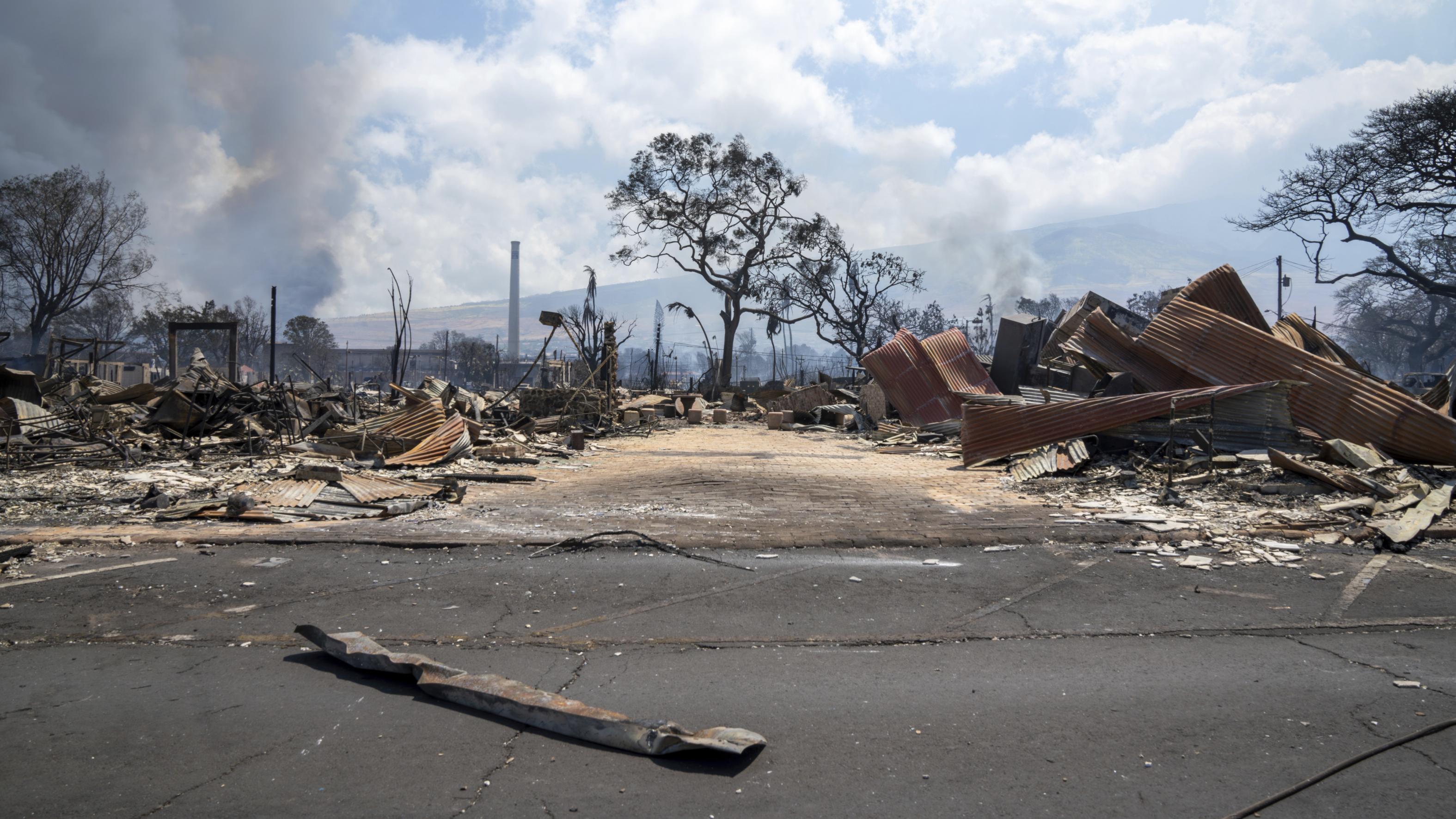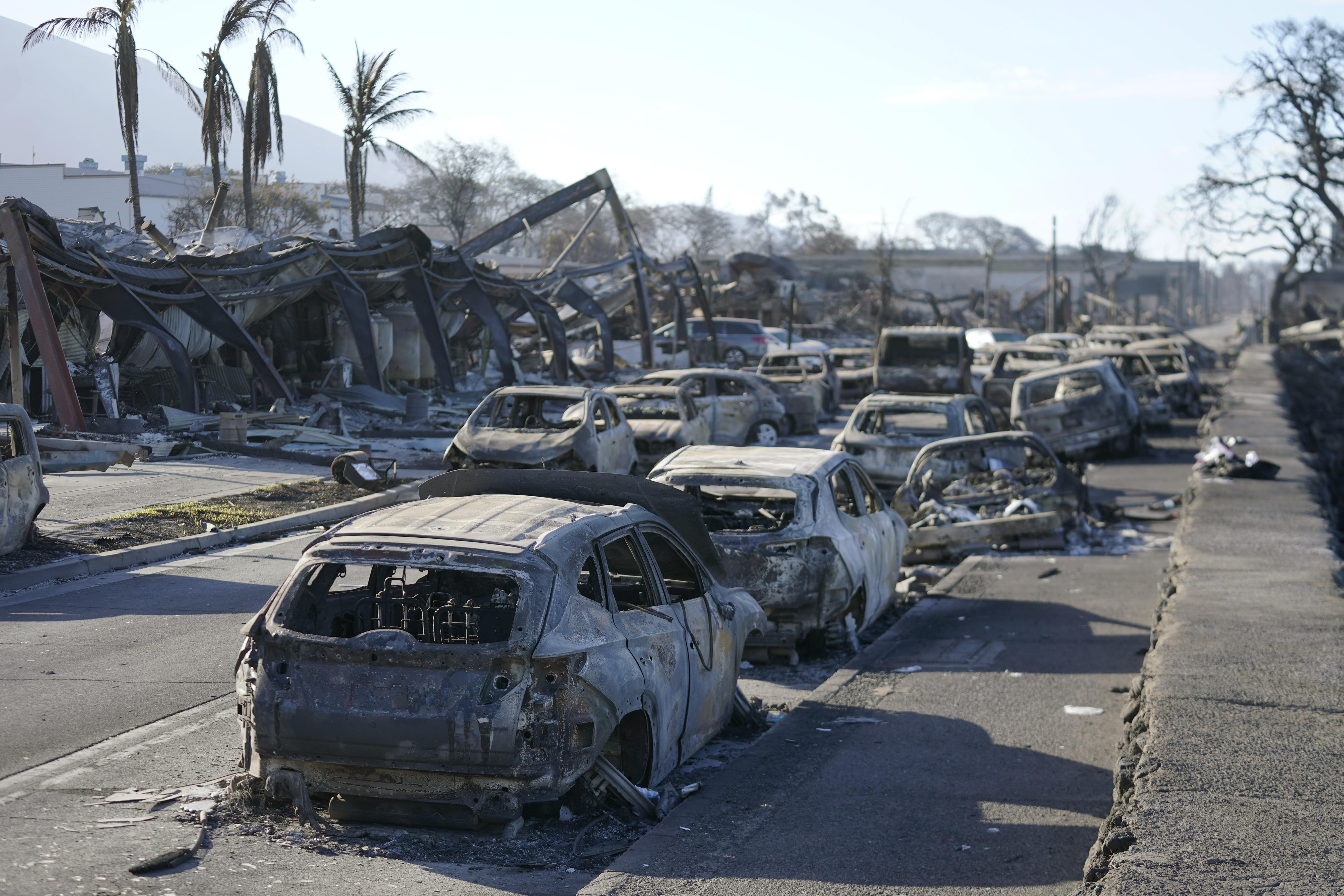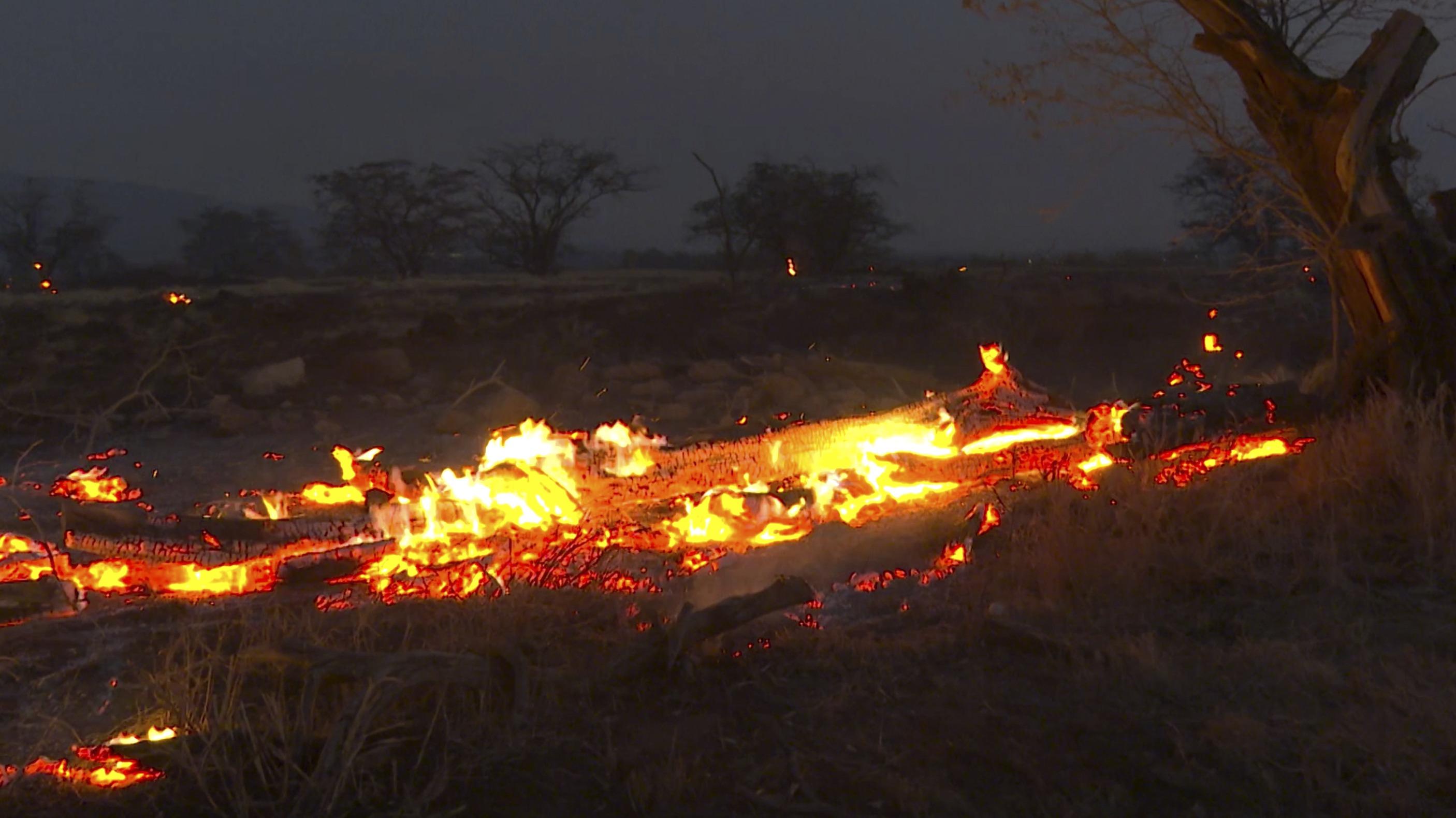 Wildfire wreckage is seen in Lahaina, Hawaii, Aug 9, 2023. (PHOTO VIA AP)
Wildfire wreckage is seen in Lahaina, Hawaii, Aug 9, 2023. (PHOTO VIA AP)
MAALAEA, Hawaii - The death toll from the Maui wildfires rose to 67 on Friday as search teams combed through the smoldering ruins of Lahaina, and Hawaiian officials sought to determine how the inferno spread so rapidly through the historic resort town with little warning.
The fires became the deadliest natural disaster in the state's history, surpassing that of a tsunami that killed 61 people on the Big Island of Hawaii in 1960, a year after Hawaii joined the United States.
Officials have warned that search teams with cadaver dogs could still find more dead from the fire that torched 1,000 buildings and left thousands homeless, likely requiring many years and billions of dollars to rebuild.
The Lahaina fire that spread from the brush to town was still burning but 85 percent contained, Maui County said in a statement
"Nobody has entered any of these structures that have burned down and that's where we unfortunately anticipate that the death toll will rise significantly," US Senator Brian Schatz of Hawaii told MSNBC.
He later told CNN that Lahaina resembled a bombed-out war zone where the heat melted engine blocks.
ALSO READ: Hawaii wildfires kill 36 as 'apocalypse' hits resort city
The Lahaina fire that spread from the brush to town was still burning but 85 percent contained, Maui County said in a statement. Two other wildfires on the island were 80 percent and 50 percent contained.
Three days after the disaster, it remained unclear whether some residents had received any warning before the fire engulfed their homes.
The island includes emergency sirens intended to warn of natural disasters and other threats, but they did not appear to have sounded during the fire.
"I authorized a comprehensive review this morning to make sure that we know exactly what happened and when," Hawaii Governor Josh Green told CNN, referring the warning sirens.
Officials have not offered a detailed picture of precisely what notifications were sent out, and whether they were done via text message, email or phone calls.
 Burnt out cars line the sea wall after the wildfire on Aug 11, 2023, in Lahaina, Hawaii. (PHOTO / AP)
Burnt out cars line the sea wall after the wildfire on Aug 11, 2023, in Lahaina, Hawaii. (PHOTO / AP)
Green described multiple, simultaneous challenges, with telecommunications down and firefighters concentrating on other major wildfires when the greatest threat to Lahaina arose.
In any event, he said, "We will do all that we can to find out how to protect our people more going forward."
Maui County Fire Chief Bradford Ventura said at a Thursday press conference that the fire's speed made it "nearly impossible" for frontline responders to communicate with the emergency management officials who would typically provide real-time evacuation orders.
"They were basically self-evacuating with fairly little notice," he said, referring to residents of the neighborhood where the fire initially struck.
County Mayor Richard Bissen told NBC's "Today" show on Friday that he did not know whether sirens went off but said the fire moved extraordinarily quickly.
"I think this was an impossible situation," he said.
Rapid advance
The disaster began unfolding just after midnight on Tuesday when a brush fire was reported in the town of Kula, roughly 56 km from Lahaina. About five hours later that morning, power was knocked out in Lahaina, according to residents.
In updates posted on Facebook that morning, Maui County said the Kula fire had consumed hundreds of acres of pastureland, but that a small three-acre brush fire that cropped up in Lahaina had been contained.
 Flames from a wildfire burn in Kihei, Hawaii Aug 9, 2023. (PHOTO / AP)
Flames from a wildfire burn in Kihei, Hawaii Aug 9, 2023. (PHOTO / AP)
By that afternoon, however, the situation had turned more dire. At around 3:30 pm, according to the county's updates, the Lahaina fire suddenly flared up. Some residents began evacuating while people, including hotel guests, on the town's west side were instructed to shelter in place.
In the ensuing hours, the county posted a series of evacuation orders on Facebook as the fire spread through the town.
Some witnesses said they had little advance notice, describing their terror when the blaze consumed Lahaina in what seemed a matter of minutes. Several people were forced to leap into the Pacific Ocean to save themselves.
The Lahaina evacuation was complicated by its coastal location next to hills, meaning there were only two ways out, at best, said Andrew Rumbach, a specialist in climate and communities at the Urban Institute in Washington.
"This is the nightmare scenario," said Rumbach, a former urban planning professor at the University of Hawaii. "A fast-moving fire in a densely populated place with difficult communications, and not a lot of good options in terms of evacuations."
County officials began allowing Lahaina residents back to their homes on Friday, even though much of Maui's western side remained without power and water. But the long traffic jam on the Kuihelani Highway crawled to a halt after an accident killed a pedestrian and led officials to close the highway in both directions.
Police barricaded central Lahaina as health officials warned the burnt areas were highly toxic and that inhaling dust and airborne particles was hazardous.
"Hot spots still exist and wearing a mask and gloves is advised," Maui County said in a statement.


